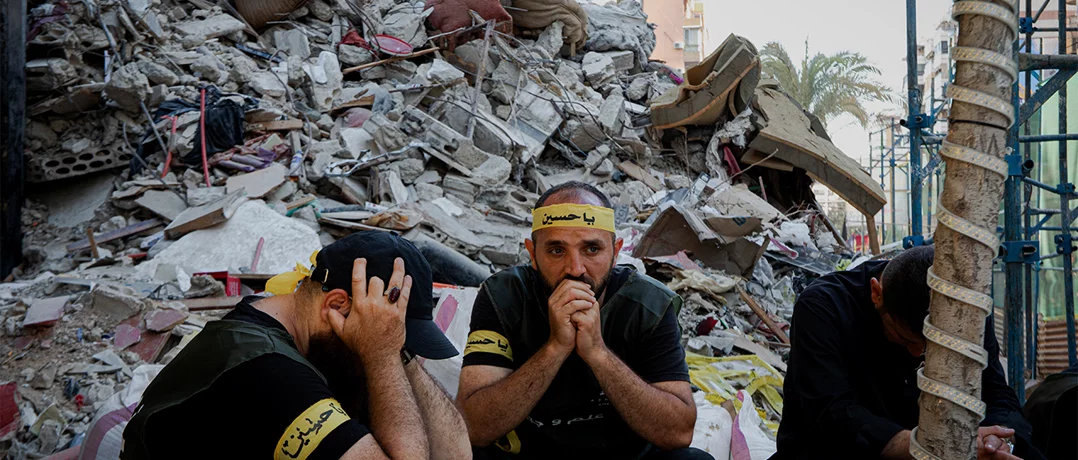In the wake of the recent war, Lebanon’s Shiite community is turning away from confrontation and demanding stability, but Hezbollah’s grip through arms, services, and political monopoly still blocks meaningful change.
Post-war dynamics within Lebanon’s Shiite community
Post-war dynamics within Lebanon’s Shiite community


The most pressing question in the aftermath of the recent war centers on the shifting political dynamics within Lebanon’s Shiite community, and how they respond to the narratives long propagated by Hezbollah.
The collapse of Hezbollah’s security narrative
One of the clearest outcomes of the conflict is that Hezbollah can no longer convincingly present itself as the guarantor of security against Israel. For decades, the group claimed that its military strength deterred Israeli aggression and protected the Shiite population of southern Lebanon. Since the end of the 2006 war, Hezbollah promoted the narrative that Israel harbored expansionist ambitions and that only its arsenal stood in the way. By this logic, Hezbollah’s power was not only a shield for Lebanon but a source of security that allowed displaced Shiite families to rebuild and thrive along the border. Today, this narrative has collapsed.
Before the recent war, the Shiite community largely embraced Hezbollah’s vision of resistance. Many believed the group could invade the Galilee, march toward Jerusalem, and ultimately eradicate Israel. This belief was carefully nurtured by Secretary-General Hassan Nasrallah and amplified by Hezbollah’s sophisticated media apparatus. Some even openly wished for a new war with Israel as a path to fulfilling that promise.
Now the mood has shifted dramatically. The Shiite community no longer seeks confrontation; instead, it demands stability, reconstruction, and the chance to return home. The appetite for war has vanished. The once-powerful image of Hezbollah as invincible has faded.
Why change remains out of reach
Yet this shift remains, for the moment, a quiet rejection rather than an organized opposition. While Hezbollah’s narrative no longer convinces, the discontent has not coalesced into a political movement, nor has it translated into measurable results in the last municipal elections. Several factors help explain why:
1. Security control. Despite its diminished regional role, Hezbollah continues to dominate Shiite areas militarily and maintains an authority that often eclipses the state’s. This makes it difficult for any grassroots alternative to emerge.
2. Financial and social services. Even with disrupted supply lines, Hezbollah still operates an extensive network of institutions in healthcare, education, commerce, and finance, most notably through “Al-Qard al-Hassan”. These services anchor the group’s influence within the community.
3. Monopoly on representation. Together with its ally, Speaker Nabih Berri, Hezbollah maintains near-total control over Shiite representation in state institutions. From parliament to government offices, Shiite citizens largely interact with the state through Hezbollah and Berri, reinforcing the group’s hold on power.
For meaningful change to take root, Lebanon must restore state sovereignty across its entire territory, ensuring that weapons are held only by legitimate authorities. Just as crucial is dismantling Hezbollah’s parallel financial system, which sustains its vast network of services and consolidates dependence. Breaking the political monopoly over Shiite representation, particularly ahead of the 2026 parliamentary elections, will be another essential step.
The broader regional context remains equally significant. Much depends on the future of Iran’s ruling establishment. It is from Tehran that Hezbollah’s rise was fueled, and it is from there that a potential transformation may one day come, one that could free Lebanon’s Shiites from the grip of a single party and open the way toward stability and peace in Lebanon and the wider region.

